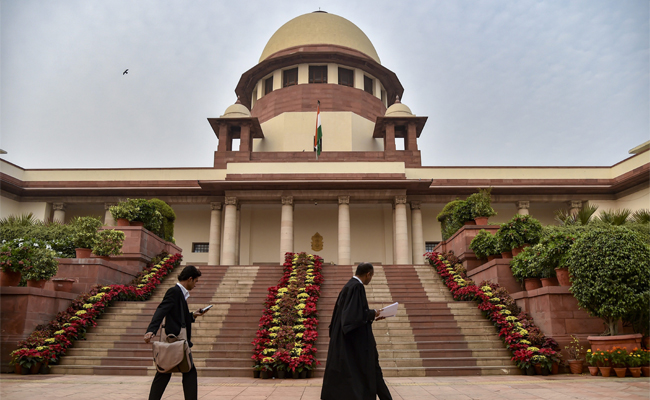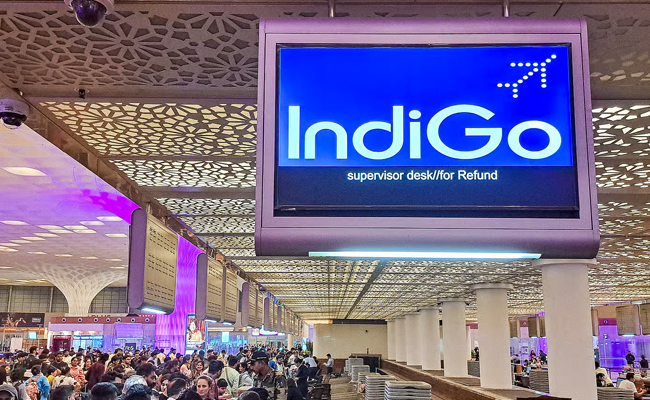New Delhi (PTI): The Supreme Court is scheduled to hear on January 2 a plea of AIMIM chief Asaduddin Owaisi seeking implementation of the 1991 places of worship law, which asks to maintain the religious character of a place as it existed on August 15, 1947.
Lawyer and MP Owaisi, who heads the All India Majlis-e-Ittehadul Muslimeen, filed the plea on December 17, 2024, through advocate Fuzail Ahmad Ayyubi.
On December 12, however, a bench headed by Chief Justice Sanjiv Khanna while acting on a batch of similar pleas against the 1991 law, restrained all courts from entertaining fresh suits and passing any interim or final orders in pending cases seeking to reclaim religious places, particularly mosques and dargahs.
"As the matter is sub-judice in this court, we deem it appropriate that no fresh suit would be registered and proceedings are undertaken till further orders of this court," the CJI-led bench had said.
As a result, the top court stalled the proceedings in about 18 lawsuits filed by various Hindu parties seeking surveys to ascertain the original religious character of 10 mosques, including Gyanvapi at Varanasi, Shahi Idgah Masjid at Mathura besides Shahi Jama Masjid at Sambhal where four persons' lives were snuffed out in clashes.
The special bench, also comprising Justices Sanjay Kumar and K V Viswanathan, was hearing about six petitions, including the lead one filed by lawyer Ashwini Upadhyay, challenging various provisions of the Places of Worship (Special Provisions) Act, 1991.
One of the contentions was that the provisions took away the right of judicial remedy to reclaim a place of worship of any person or a religious group.
The 1991 law prohibits conversion of any place of worship and provides for the maintenance of the religious character of any place of worship as it existed on August 15, 1947.
Owaisi, in his plea, has sought a direction to the Centre to ensure effective implementation of the law, said his counsel.
He also referred to instances where several courts had ordered survey of mosques on pleas by Hindu litigants, he said. It is likely that the top court would on January 2 tag Owaisi's plea with the pending matters for hearing.
Pleas of the Muslim side have also sought strict implementation of the 1991 law to maintain communal harmony and to preserve the present status of mosques, sought to be reclaimed by the Hindus side saying temples existed in these places before invaders razed them.
The Gyanvapi Mosque management committee had moved the apex court to oppose several pending petitions that challenge the constitutional validity of the 1991 law.
It listed a series of contentious claims made over the years concerning various mosques and dargahs, including the Shahi Idgah Masjid in Mathura, the Quwwat-ul-Islam Mosque near Delhi’s Qutub Minar, the Kamal Maula Mosque in Madhya Pradesh, and others.
The petitions challenging the law were filed with "mischievous intent" to facilitate lawsuits against these religious sites, which the 1991 Act currently protected, the committee said.
Let the Truth be known. If you read VB and like VB, please be a VB Supporter and Help us deliver the Truth to one and all.
Bengaluru (PTI): The Karnataka government has issued directions to municipal corporations across the state to regulate and prohibit feeding pigeons in public places, citing serious public health concerns.
Deputy Secretary to Government V Lakshmikanth has written to the Urban Development Department requesting it to issue directions to the Greater Bengaluru Authority (GBA) and all municipal corporations to take immediate steps to implement the measures.
In an official note dated December 16 issued by the Health and Family Welfare Department and released to the media on Wednesday, the department said uncontrolled feeding of pigeons in public places has resulted in large congregations of birds, excessive droppings and serious health concerns, particularly respiratory illnesses linked to prolonged exposure to pigeon droppings and feathers such as hypersensitivity pneumonitis and other lung diseases.
ALSO READ: Chinese GPS tracker found on seagull near Karwar Coast
"The commissioner, the Greater Bengaluru Authority and the Commissioners and chief officers of other municipal corporations shall take necessary action to mitigate the causes of dangerous disease spread by pigeon and enforce specified guidelines in their respective jurisdiction," the note said.
According to the department, these include a prohibition on feeding pigeons or causing pigeons to be fed in areas where it may cause nuisance or pose a health hazard to the public. Pigeon feeding shall be permitted only in designated areas in a controlled manner, subject to certain conditions.
"The designated areas may be selected in consultation with stakeholders. The responsibility for upkeep of the designated areas and compliance to the directions shall be taken up by some charitable organisation or an NGO. The feeding in designated areas shall be permitted only for some limited hours in the day," it said.
The note further stated that authorised officers of local authorities shall issue on-the-spot warnings and may impose fines for violation of the order, or lodge complaints to prosecute offenders under Sections 271 (Negligent act likely to spread infection of disease dangerous to life) and 272 (Malignant act likely to spread infection of disease dangerous to life) of the Bharatiya Nyaya Sanhita.
It also directed local authorities to conduct public awareness campaigns, including the display of signboards, banners and digital messages, explaining the health hazards associated with pigeon droppings and feathers, the content of the regulatory directions and penalties for violations, and alternative humane methods of bird conservation that do not endanger public health.





